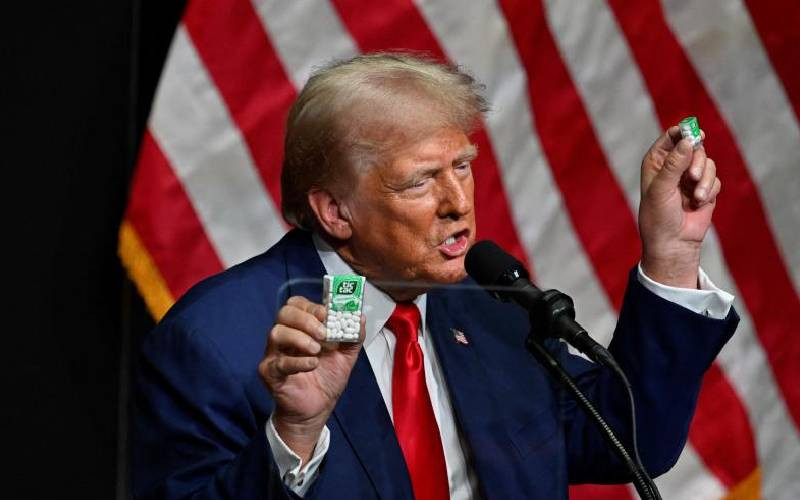
The Nairobi Stock Exchange (NSE) has seen speculative trading in the past few weeks, particularly in small-cap or underperforming companies, which can resemble a ‘casino’ environment. The ‘small companies’ in the NSE are outperforming blue chip companies that has resulted in some of the share prices going up by even more than 105%. This is gambling!
What Is Speculative Trading?
This involves buying or selling stocks based on anticipated price movements rather than the company's fundamental value. It's driven by expectations of short-term gains, often fueled by rumors, social media hype, or market psychology.
The factors contributing to speculative trading include insider trading, low liquidity in small-cap stocks, economic uncertainty, and the ease of spreading information through social media platforms.
Impact on Small-Cap Stocks:
- Price Volatility: Speculation can lead to rapid price increases in small-cap stocks, which may not reflect their true financial health. This volatility can attract more speculative traders, creating a self-reinforcing cycle.
- Risk of Collapse: When speculative interest wanes, prices can plummet, resulting in significant losses for investors. This risk is heightened in small-cap stocks due to their limited market depth.
‘THE NSE CASINO’
Like a casino, speculative trading involves a high degree of unpredictability. Investors gamble on stock prices rather than making informed decisions based on company performance.
Both casino gambling and speculative trading often involve emotional decision-making, where fear and greed drive actions rather than rational analysis.
Speculative trading is driven by:
- Profit Motive: Traders aim to profit from short-term price fluctuations, often ignoring long-term fundamentals.
- Market Psychology: “Herd/Wildebeest” mentality of crossing The Great Mara River and fear of missing out (FOMO) drive investors to chase rising stocks.
- Low Liquidity in Small Caps: Smaller companies often have fewer shares traded, making them easier to manipulate or hype.
- Accessibility: Online trading platforms and social media (e.g., WhatsApp groups, Twitter) amplify speculative behavior by spreading rumors or "hot tips."
- Economic Conditions: In uncertain macroeconomic environments, investors may turn to speculative bets for quick returns.
- Social Media Hype: Viral trends or misinformation about undervalued stocks (e.g., claims of "hidden value" or pending deals).
- Low Market Depth: Small-cap stocks have limited liquidity, allowing even modest trades to swing prices dramatically.
- Weak Corporate Disclosure: Lack of timely financial reporting enables rumors to override fundamentals.
- Global Trends: Copycat behavior from international "meme stock" frenzies (e.g., GameStop in the U.S.).
- Regulatory Gaps: Weak enforcement against market manipulation (e.g., "pump-and-dump", “pyramid” schemes).
What are the current setbacks in managing the speculative trading in the NSE?
- Regulatory Challenges & Framework
Monitoring and Enforcement: The Capital Markets Authority (CMA) faces difficulties in monitoring real-time trading activities, especially when speculation is fueled by social media and informal networks. Enforcement actions against market manipulation can be slow or ineffective. The CMA may lack sufficient resources (e.g., technology, personnel) to effectively track and respond to speculative trading patterns. The existing laws and regulations might not fully address modern forms of speculation, such as those facilitated by social media or high-speed trading.
- Market Psychology and Herd Behavior
Social media platforms can rapidly spread rumors or "hot tips," leading to herd behavior where many investors follow speculative trends without analyzing underlying fundamentals. The Fear of Missing Out (FOMO): Investors may feel pressured to participate in speculative trades to avoid missing potential gains, even if they understand the risks.
- Lack of Investor Education
Many retail investors lack the knowledge to distinguish between speculative hype and genuine investment opportunities. This can lead them to engage in risky trading practices. Without proper education, investors may not fully understand the risks associated with speculative trading or how to manage their exposure effectively.
- Technological Challenges
The increasing use of high-speed trading algorithms can amplify speculative trends, making it difficult for regulators to keep pace. While data analytics can help identify speculative patterns, the NSE and CMA may not have access to the latest tools or expertise to utilize this data.
- Economic and Market Conditions
In times of economic uncertainty, investors may turn to speculative trading as a way to seek quick returns, exacerbating market volatility. Small-cap stocks often have low liquidity, making them more susceptible to price manipulation and speculative trading.
What are the Risks of Speculative Trading?
- Investor Losses: Prices driven by hype often collapse when speculation fades, leaving retail investors with losses.
- Market Distortion: Overvalued stocks distort price discovery, making it harder for investors to assess true value.
- Erosion of Trust: Speculative bubbles can undermine confidence in the NSE as a fair marketplace.
- Systemic Risk: Excessive speculation may destabilize the broader financial system if leveraged positions unravel.
- There is no return on investments through dividend payout apart from the short term capital gain on the increased share price.
Are there Policies and Regulations to Protect Investors in Kenya?
- Kenya’s Capital Markets Authority (CMA) and NSE have frameworks to curb speculation:
- Market Surveillance: Monitoring unusual trading patterns and insider trading.
- Circuit Breakers: Halting trading during extreme volatility (e.g., price swings exceeding 10% in a day).
- Investor Education: Campaigns like CMA’s "Utunzaji Mali" to promote informed investing.
- Penalties for Manipulation: Fines or bans for individuals/entities engaging in pump-and-dump schemes.
However, challenges persist due to:
- Limited resources for real-time monitoring of social media-driven speculation.
- Light penalties that fail to deter well-connected "sharks."
Consequences for the NSE:
- Market Credibility: Excessive speculation can erode trust in the NSE as a fair and transparent marketplace. This may deter long-term investors seeking stable returns based on company fundamentals.
- Systemic Risk: If speculative bubbles burst, it could destabilize the broader financial system, particularly if leveraged positions are involved.
The Do’s and Don’ts of Speculative Trading
DO’s:
- Research: Analyze a company’s financials, management, and industry position.
- Diversify: Avoid putting all funds into volatile small caps.
- Set Stop-Loss Limits: Automatically sell if prices fall below a threshold.
- Follow Regulators: Monitor CMA/NSE alerts on suspicious trading.
DON’TS:
- Follow the Herd: Avoid buying stocks solely because they’re trending.
- Leverage Excessively: Borrowing to speculate magnifies losses.
- Ignore Fundamentals: If a company has weak earnings but a soaring stock price, tread carefully.
- Fall for "Get Rich Quick" Schemes: Most viral stock tips are designed to benefit insiders.
While speculation adds liquidity to markets, unchecked gambling undermines the NSE’s role as a platform for capital formation. Strengthening enforcement, enhancing investor education, and promoting transparency in small-cap reporting are critical to balancing innovation and stability. Retail investors must prioritize due diligence over hype to avoid becoming collateral damage in the "casino."
 The Standard Group Plc is a multi-media organization with investments in media
platforms spanning newspaper print operations, television, radio broadcasting,
digital and online services. The Standard Group is recognized as a leading
multi-media house in Kenya with a key influence in matters of national and
international interest.
The Standard Group Plc is a multi-media organization with investments in media
platforms spanning newspaper print operations, television, radio broadcasting,
digital and online services. The Standard Group is recognized as a leading
multi-media house in Kenya with a key influence in matters of national and
international interest.
 The Standard Group Plc is a multi-media organization with investments in media
platforms spanning newspaper print operations, television, radio broadcasting,
digital and online services. The Standard Group is recognized as a leading
multi-media house in Kenya with a key influence in matters of national and
international interest.
The Standard Group Plc is a multi-media organization with investments in media
platforms spanning newspaper print operations, television, radio broadcasting,
digital and online services. The Standard Group is recognized as a leading
multi-media house in Kenya with a key influence in matters of national and
international interest.











